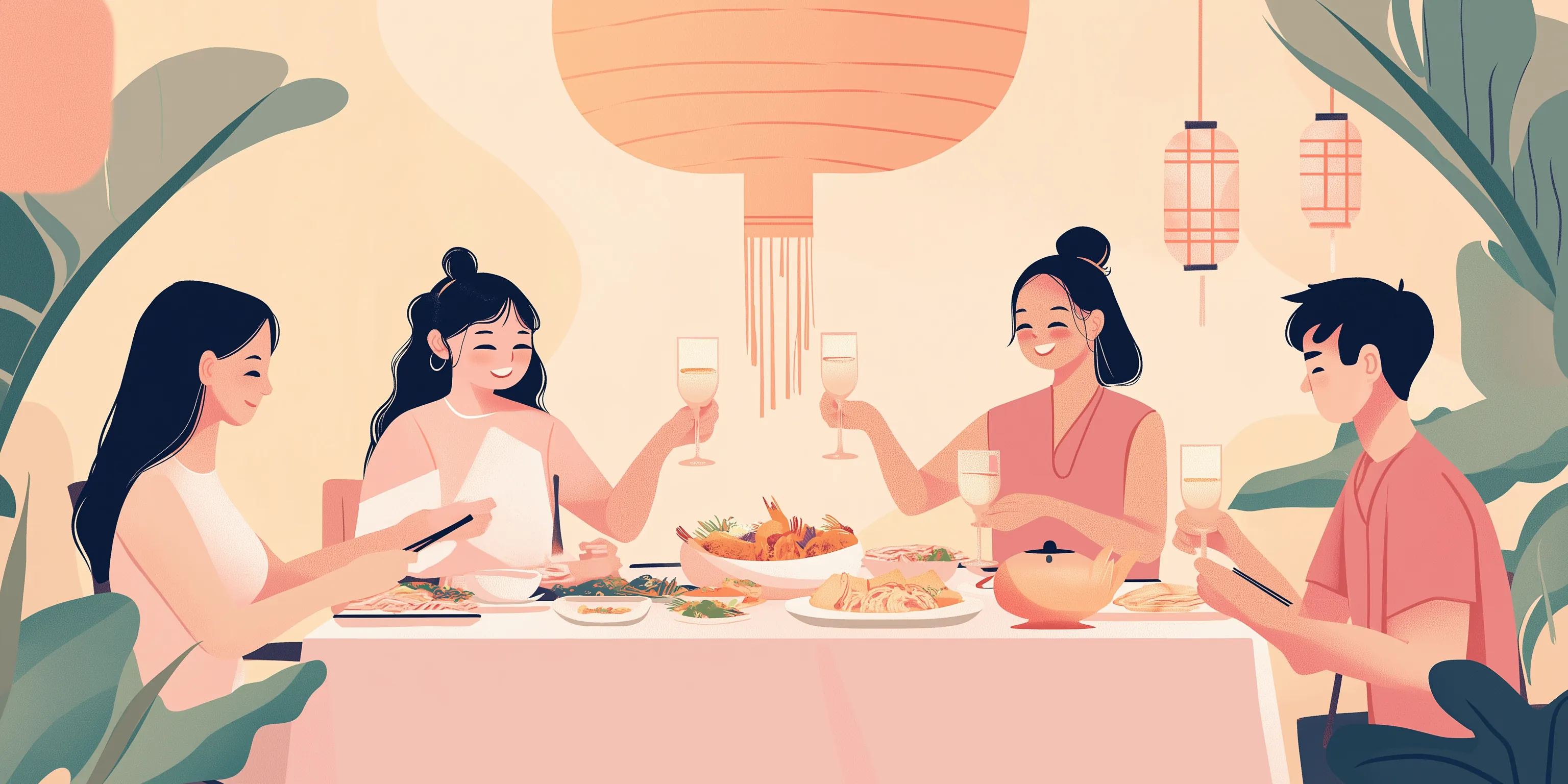Chinese Dining Etiquette and Table Manners
Dining together is incredibly important in Chinese culture! Food isn't just about nutrition - it's about building relationships and showing respect. Learning some basic table manners and phrases will help you navigate meal situations with confidence and make a good impression when invited to dinner in China.
Essential Dining Phrases
These six useful expressions will help you handle any Chinese dining situation with ease:
Using These Phrases
Let's learn how to use each of these important dining expressions in the right context:
Complimenting the Food
好吃delicious means "delicious" - this is the perfect simple compliment for any meal. Chinese hosts take great pride in serving delicious food, so expressing your enjoyment is always appreciated!
Making a Toast
干杯Cheers (toast) means "cheers" or literally "dry glass" - use this when raising your glass for a toast. Remember to hold your glass with both hands when toasting with someone older or more senior than you as a sign of respect.
Indicating You're Full
我吃饱了I'm full means "I'm full" - use this politely when you've had enough food. In Chinese culture, hosts will often continuously offer more food, so this phrase helps indicate you've eaten well.
Inviting Others to Eat
请慢用Please enjoy your meal means "please enjoy your meal" - use this phrase when serving food to others or at the beginning of a meal. It shows consideration for others' dining experience.
Urging Others to Eat More
多吃点Eat more means "eat more" or "have some more" - this is commonly said by hosts to guests to show hospitality. It's a way of making sure everyone feels welcome and well-fed.
Thanking the Host
谢谢招待Thank you for your hospitality means "thank you for your hospitality" - the perfect phrase to use when leaving after a meal. This expresses gratitude not just for the food but for the entire hosting experience.
Mini Conversation Practice
Try practicing these simple dialogue scenarios:
Dialogue 1: Complimenting Food
Dialogue 2: Making a Toast
Dialogue 3: End of the Meal**
Important Chinese Dining Customs
Understanding these cultural customs will help you navigate Chinese dining situations with confidence:
- Wait for elders to start eating before you begin - this shows respect
- Never stick chopsticks upright in rice - this resembles incense for the dead and is considered highly unlucky
- Tap the table with two fingers when someone pours tea for you as a gesture of thanks
- Try a little of everything that's offered to show appreciation for the variety
- Leave a little food on your plate at the end to indicate you've been well-fed (contrary to Western "clean plate" customs)
- Use the serving chopsticks 公筷 for shared dishes rather than your own personal pair
Tips for Being a Good Guest at Chinese Meals
- Bring a small gift when invited to someone's home, like fruit, pastries, or tea
- Arrive on time - punctuality shows respect for the host
- Try using 好吃delicious to compliment specific dishes your host has prepared
- Practice saying 谢谢招待Thank you for your hospitality before you attend a dinner in China
- Learn to use chopsticks before your visit if you're not already comfortable with them
Learning these basic dining phrases and customs will greatly enhance your experience at Chinese meals and help you build better relationships with Chinese friends and colleagues. Remember that sharing food in China is about much more than eating - it's a way to create bonds and show care for each other!
